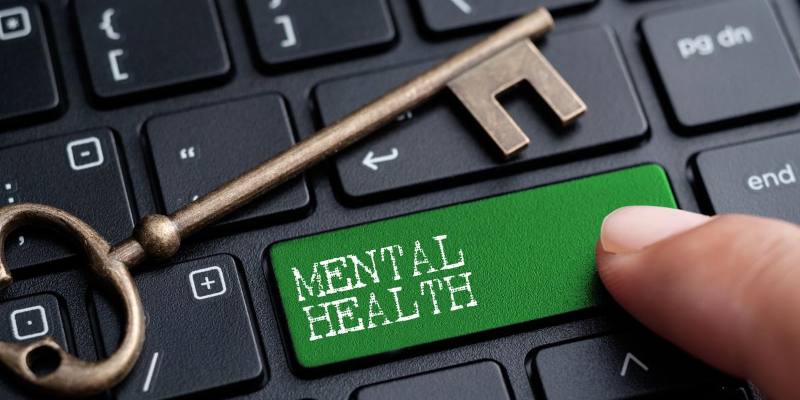How technology is changing the face of mental health in India?
With the growing incidence of mental health issues, technology is breaking down barriers and making mental healthcare easily accessible with the help of telepsychiatry and a host of mobile-based apps.
Psychological wellbeing is a critical part of overall health, yet it is a frequently ignored subject of conversation. This is because of the taboo that has been associated with psychological disorders.
Mental issues are very normal and there is treatment to help manage them. However, the lack of awareness and the taboo around it has increased the treatment gap in our country.
Psychological unrest in India
Nearly 150 million Indians require mental health intervention and in higher spectrum cases, they deal with bipolar disorder, split personality, OCD, psychosis, and others.
While the disorders may vary from one another, the internet access has made it easier for the patients themselves or their loved ones to distinguish the symptoms and care treatment. With the touch of a button one can get hold of as many resources and personal experiences on the web or their mobile applications.
Thanks to the awareness campaigns and non-profit organisations such as Live Love Laugh foundation, these conversations are gradually becoming an ordinary subject.
The problem
The abundant information available on the internet is not enough for an individual trying to differentiate between the signs and symptoms of a bipolar disorder or a split personality disorder, OCD or schizophrenia, and the like. And, far less emotional wellbeing mobile applications exist contrasted with those dedicated to overall wellbeing.
The shortage of qualified mental health professionals worsens the situation even more.
Role of technology in making mental healthcare accessible
Virtual healthcare has been around for sometime now. It has been utilised in almost every aspect of the healthcare sector by now. However, with the increasing concern towards mental illness in India, it is now important that the same is also extended to providing telehealth services for psychological disorders.
Telepsychiatry is an innovative use of telemedicine in the field of psychiatry and is poised to have a noteworthy impact on the care delivery.
It offers a range of services including psychological assessments, treatments (for individual, family, or even group), medication and patient engagement. It increases the capacity as well as reach of mental health professionals to give proper diagnosis and treatment utilising telecommunication tools such as video calling. Telepsychiatry empowers mental wellbeing experts to give primary care, consultation, and counselling.
There are more than one thousand mobile applications dedicated to mental health, with many centered around anxiety, depression, and substance misuse. Mental wellbeing applications permit individuals who are reluctant to look for in-person help to discover it in the safe space of their phones, even anonymously.
Mobile applications additionally permit specialists and experts to screen progress and treatment adherence. These applications have incredible potential; however, there is almost no guideline monitoring the applications or for the extent of their adequacy.
Several organisations across the globe are doing preliminary research on the use of chatbots to decrease the measure of time patients spend on the paper-based polls at their GP.
It can also help in tackling depression and anxiety issues remotely. This upgrades individuals' encounters of care benefits as well as helps increase commitment to their own health.
The chatbots are automated conversational agents which help to monitor the moods of their users and sometimes are even equipped with identifying the psychological triggers which may seem self-destructive.
Role of institutions in mental healthcare delivery
Unlike any other condition, mental illness has never received its due consideration. Clinical science as a subject is not very appealing to many students in the medical fraternity.
What's more, this prompts the deficiency of mental health experts causing a huge gap between demand and supply.
Both public and private establishments are effectively concentrating on expanding the extent of mental healthcare facilities by expanding their network of doctors, specialists, and frontline health workers in their psychology department.
The best ones are helping patients to access care privately, safely and on their own terms, without having to wait for appointments because of the lack of enough mental wellbeing suppliers across the nation.
Virtual healthcare in India is still in its formative stage as it requires extensive research and streamlining to offer proper care treatment. Mobile applications and telehealth services may come as additional resources for the patients to seek first-step help, but the mental health ecosystem still needs traditional therapy channels and human connection.
(Disclaimer: The views and opinions expressed in this article are those of the author and do not necessarily reflect the views of YourStory.)








